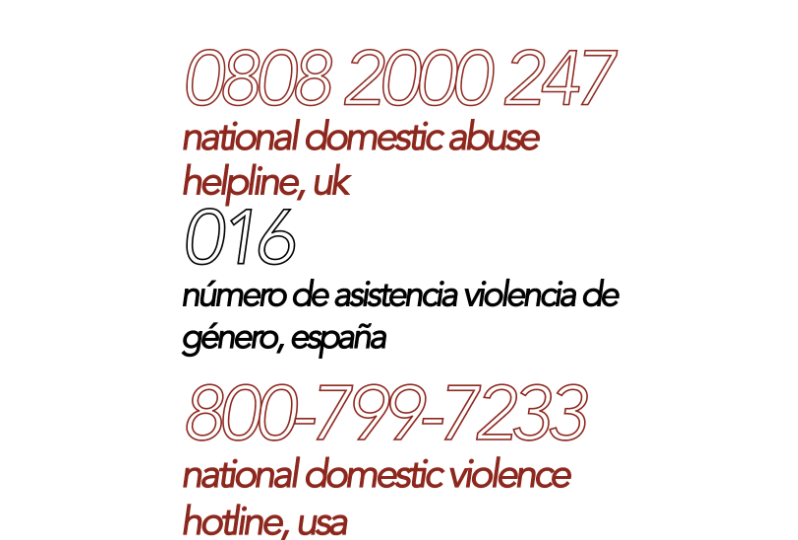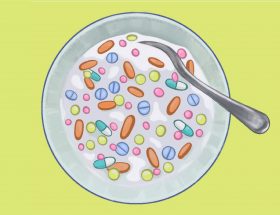“Y encima me cobran la maleta de mano, aunque ya la había pagado, joder, Dena, que no, que son unos hijos de puta yo saliendo corriendo por patas y todos los demás que están aquí son turistas españoles o guiris, es que estoy hasta el coño, que yo no me quiero volver que esto es una mierda…”
There’s no need for me to translate the words above (so why put them there?, you may ask, well, because literature is presumptuous and unnecessarily adorned, and because there’s quite a few swear words I’m sure even non-Spanish speakers will understand), what I was screaming to my mum as I waited to board a plane in Edinburgh 24 hours after Spain declared a state of emergency and a subsequent national lockdown due to– you’ve guessed right– Covid-19, our dear friend coronavirus. There’s no need for me to translate those words because they’re merely an angry extension of a sentiment we all seem to have been sharing since our lives were halted by a series of governmental efforts to contain the spread of the illness: self-pity.
I felt sorry for myself on the plane, while having a cig with my mother outside Seville Airport (if you know me this won’t surprise you; if you don’t, I suggest you try it. Smoking with my mother has opened the door to us weirdly becoming adult friends, but I guess that’s a matter for another article), on the drive home to Córdoba, the entirety of the first two days locked up inside. Of course, other emotions were at play, the building tension of the unknown, the fear of not knowing when I would see my friends or family members again, annoyance at the fact that the university expects me to hand in work when the world seems to be collapsing around us… Thus, as any other wise individual would do, I decided to drown myself in social media and search for sympathy there.
The answer I found was what we could call the positivity movement. Post after post after post explaining how quarantine, be it in the form of chosen or imposed self-isolation, is actually a good thing. You now have time to read your book! You now have time to develop that new hobby you had been obsessing over! Oh, isn’t it wonderful that kids can now have all their meals with their parents? Oh, isn’t it wonderful that we can stop our lives and reflect, that we can appreciate the beauty of existence and grow and think, and when all of this is over we’ll be able to go on to the streets and hug and dance and laugh and love? We needed this!
Now, I am not directly quoting any posts, but if you’ve scrolled through Instagram or Facebook lately (which, let’s be honest, you probably have) you may have seen something similar. The positivity movement appears to have a very simple mechanism: premise 1, the quarantine is something similar to a house-only-holiday, meaning that, once it ends, you’ll go back to your normal life (plus a few extra hobbies such as online yoga or singing along with that neighbor you’ve never had a proper conversation with in your entire life); premise 2, in assuming that everything will just go back to normal, the positivity movement encourages you to impose beauty, not only on your situation, but on the general level. It encourages you to see the quarantine, as a whole, as something beneficial to society, something we needed. This premise, in turn, is sustained by two elements: the message of making the most of the free time you now have, and romanticization of the end of the quarantine on a general, we’re-all-equally-affected level.
“And the people stayed home. And read books, and listened and rested and exercised, and made art, and played games, and learned new ways of being, and were still. And listened more deeply. Some meditation, some prayed, some danced. Some met their shadows. And the people began to think differently. And the people healed. And in the absence of people living in ignorant, dangerous, mindless, and heartless ways, the earth began to heal. And when the danger passed, the people joined together again, they grieved their losses and made new choices, and dreamed new dreams, and created new ways to live in harmony and heal the earth fully, as they had been healed.”
Ahmed Shihab-Eldin (Instagram @ahmedeldin)
This micro story is just one of multiple being passed around social media right now. It also happens to be beautiful, full of hope, to intend to make us all feel better. The whole positivity movement aims to do that. And, for the first two days, as much as I hate to admit it, this kind of messages did the trick for me. Friends on social media watering their house plants with social distancing stamped underneath seemed to be enough. We were all going to be okay; it was going to be fine.
On Friday, March 20th, I woke up to the news that a woman had been murdered by her husband in front of their two underage children in Almassora (Castellón, Spain). Another woman had been attacked by her partner in the early hours of Thursday, the article from El País explained. He had tried to cut her throat open after she told him she was leaving him. She is now in the intensive care unit in Sevilla. They were the first two victims of domestic violence crimes during the national lockdown in Spain. And so, on Friday, March 20th, I shook myself awake and realized that a quarantine is not the same for all of us. It is not merely a stay-at-home vacation, it is not a pause before going back to normal.
Think about women in quarantine. Victims of domestic abuse are forced to spend 24 hours a day for a total of 30 days with their abusers. Locked up in their houses, which in general tend to be tiny apartments with no hiding spots. The children of victims of domestic abuse (which are victims themselves, either directly or vicariously through what they are forced to witness) are locked up in there too. There’s not enough virtual yoga in this world to hide the fact that that is not a blessing. It is the fear and danger they were exposed to before the quarantine, only now the contact with the outside world and the possibility to escape have been significantly reduced.
For women who are not victims of domestic abuse, the situation is not easy either. A quick Google search reveals that women take up most of the household chores, which naturally increase when no one leaves the house, and which spike significantly when children are stuck at home and the role of teaching falls on the parents. The pressure to become the perfect parent (this applies to men as well) from one day to the next, to organize a full set of activities, to overperform at one’s biological duty after having brought a child into this world, is not a holiday. For women who continue working even during the lockdown, the situation suggests itself as being even more stressful. In Spain, the three main jobs that continue functioning for the sake of society as a whole are those of doctors, pharmacists and supermarket employees. In Spain, estimates state that 55.5% of doctors are female, 71.6% of pharmacists are women, and 64% of workers of the main national supermarket chain, Mercadona, are women too. This means that over half of the people who are still on the streets, in direct contact with others everyday, and therefore at risk of being infected, are women. Women (who are getting paid an average of 20% less that their male co-workers, but that’s a matter for different article) who will go home, most likely to their children and partner (72.1% of women between the ages of 35 and 39, and 81% of those over the age of 40 in Spain have had at least one child). For them, not only is the quarantine period not a holiday opportunity, but it has effectively transformed them into the closest link between the biggest current threat and their loved ones.
Working, or something most people in a government-imposed lockdown are not able to do. The economic impact of the Covid-19 crisis has already been widely discussed; estimates claim that it will bring the world down in a way similar (or worse) to how the financial crisis hit it in 2008. In Spain, the 2008 crash meant that unemployment rocketed from 9.1% in January 2008 to 26% in December 2012 (which is roughly when the crisis was at its worst). Right now the rates are 13.7%, which is already high for a democratic country in Western Europe. And while the government has promised economic measures (more specifically, a sum that’s 20% of the national GDP), a promise is not a guarantee of continued employment in the next few months. According to the European Commission, 40% of Spanish workers with permanent contracts were fired during the economic crisis. The textile giant, Inditex, owner of Zara (and loved national icon due to its ability to successfully milk the capitalist system and exploit workers in South-East Asia), has already announced the application of a temporary ERTE, Expediente Temporal de Regulación de Empleo, or a temporary collective dismissal procedure, that would apply to 25,000 employees if the lockdown were to extend past April 15th. That is, if the quarantine were to last longer than April 15th, Zara would fire 25,000 workers for a certain amount of time, meaning that instead of earning their standard wages those affected would go on to earn whatever sum the state deems adequate for unemployment benefits. Inditex is not the only company that has taken this decision: from Iberia to Seat to H&M, other big businesses have chosen to apply the same measure to part of their Spanish employees. Some smaller businesses find themselves in the same situation. The economic contagion of coronavirus is not unique to my homeland: the repercussions will be felt across the globe. For many, quarantine is not a break, it is economic hardship to the point of struggling to feed one’s own children; it is a wait, not to go back to normal, but to face the prospect of losing one’s job and all the consequences that come along with it.
For others, domestic abuse, balancing work and chores and children, the job market, none of those may be an issue during the quarantine. The outside world, others, may not impede the quarantine from being a holiday– but the health conditions they struggled with before the crisis started can become even bigger obstacles throughout it. Think of people with physical conditions, such as degenerative diseases, who may need to walk a certain distance everyday for their own sake but who are trapped in tiny apartments. Of those who suffer claustrophobia and don’t even have a tiny balcony to feel like they’re outside. Of those who cannot drive due to some disability and have no one to drive them to the store. Of those with anxiety or stress or depression locked up inside, maybe alone, for days. Of those with or recovering from eating disorders, to whom the idea of inactivity and meals (furthered by the distasteful memes about how much weight we’re gonna gain during self-isolation) feel like an ordeal. For them, the quarantine is not something we needed, it is not something inherently good.
The imposition of the general beauty of the quarantine by the positivity movement overlooks all of those people and others, like the homeless or refugees, or LGBT+ individuals stuck with families who reject them (and maybe abuse them), or ‘illegal’ immigrants (reminder: no human being is illegal on stolen land). It implies a sense of homogeneity in circumstances that does not exist. Quarantine is not easy for anyone. I am in the south of Spain, in a house with a garden and a pool, with access to food and electricity, and yet I get scared sometimes or sad because the sense of uncertainty and the fear over losing a loved one affect us all. In people from the same socio-economic background as mine it has triggered the sense of self-pity I mentioned at the beginning. I want to go to the pub! I want to see my friends! My holiday got canceled! I have to stay home! I hate all of this! The positivity movement aims to reply to that, to tell us that it is okay, that the world hasn’t ended, that we should actually be thankful.
The problem is that it misses the point.
Yes, we should actually be thankful. But not for the quarantine: we should be thankful for the fact that we are in a position in which quarantine just means that we have to stay inside. Nothing less, nothing more. That is a privilege we have, a privilege that stems from our social background, our economic (and class) status, our mental or physical health. It is a privilege that, once again, grows from the overall functioning of our capitalist system.
The positivity movement asks us to reflect, to get in touch with our inner selves, and I say do it. But do it truly and honestly, do it without placing yourself as the centre of the picture. Walk around your living room in the shoes of those who are less fortunate, look through the glasses of those for whom the quarantine will not just vanish away once the lockdown is lifted. I’m not asking you to transform your self-pity into pity towards others; I’m asking you to transform it into anger. If something good, beneficial as a whole comes out of this crisis, it will be in the form of progress for all, in the form of universal healthcare in the States or of better economic support for local businesses in Spain, in the shape of healthcare coordination across Europe or better funding and structure to the NHS. I believe that the quarantine can teach us something, but only if we’re willing to look at the signs that it’s pointing at, at the flaws within our system, and then strong enough to act accordingly.
But I am not naïve and this is not a Marxist pamphlet. I know that from the comfort of their bed, no individual has the power to will those potential benefits into existence or to organize a revolution. I do have hope that they will happen, if the clock of improvement keeps on ticking as it has throughout history. I do believe individual conscience spread among the many can push for change. All in all, however, I am just asking for awareness. Be as positive as you can, try to find happiness and peace during quarantine, take care of yourself. Just don’t forget where you stand. Don’t forget that, as long as we live under this kind of capitalism, no crisis (unless it’s one that kills us all at once– death, the great equalizer) will ever affect us all in the same way.




